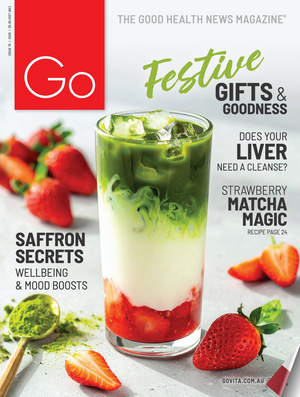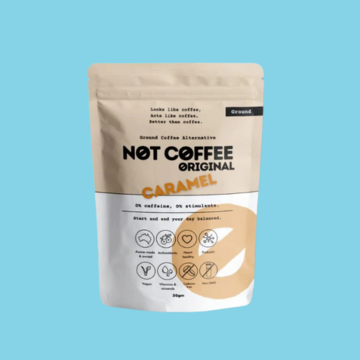Written By  Go Vita
Go Vita
blog

As any parent knows, young people think they are immortal and they take risks.
Food diet
Change your thinking
Lack of exercise
Breaking news
Brain Health For The Millennials
As any parent knows, young people think they are immortal and they take risks.
However, they can also protect themselves.
A certain degree of memory impairment is a normal consequence of ageing. However, what is less widely known is that this decline begins as early as the mid-30s,andpermanently affects memory and recall. What is even less widely known among people aged 35 years and under is that many of their behaviours can damage their brain.
However, the good news is that there are many simple proactive and empowering strategies which they can adopt that will safeguard their brain health, both now and long into their future. Don’t wait for cognitive and memory problems to appear before doing something about them–prevention is always better than cure. Here are the risk factors and how to significantly reduce their impact.
Food diet
Young people can have an inadequate intake of essential nutrients due to many factors. These may include stresses and pressure of study and work; late nights and excess partying; smoking and recreational drug use; and overindulgence in alcohol, which strips the body of B-group vitamins and magnesium that are crucial to neural health,brain development and performance.
Additionally, young teens may experience growth spurts which increase nutrient requirements or
- follow a low-fat diet to regulate cholesterol, as fatty foods will gradually clog arteries and reduce oxygen flow to the brain.
- eat foods rich in carnitine, such as lean meat, cheese and eggs; non-animal sources include beans, whole grain breads and cereals and asparagus. Beans and wholegrains also contain lecithin, needed to make acetylcholine, a vital neuro transmitter.
- the antioxidant vitamins C and E protect the young brain from damage by neutralising free radicals and reducing the protein plaques associated with impaired memory. The B-complex vitamins are specific for brain development, with research showing even slight short falls in vitamin B12 and folic acid cause mental sluggishness by elevating levels of homocysteine (an amino acid).
Change your thinking
Adolescence and young adult hood is a time of experimenting, questioning and learning what works for you, including thinking habits. The toll that stress, over work, long study hours and career concerns take on your brain depends largely on how you cope with challenges. If you tend to withdraw, get angry or discouraged, blame yourself and put more pressure on yourself, or reach for a stiff drink or other unhealthy distraction, you’re letting stress win.
However, if you train yourself to think differently and see the situation as temporary and manageable (“This person has a problem with me, but most people don’t”; “Things will get better soon”) you’ll be more immune to life’s ups and downs.
Lack of exercise
Exercise is most beneficial way to deliver oxygenated blood to the brain. Researchers have also found a clear link between high blood sugar levels in young people and reduced volume of the hippocampus, the part of the brain involved in memory and learning. University students with impaired blood sugar regulation commonly perform more poorly in memory tests.
Since weight loss and exercise will normalise blood sugar levels, improve sleep and reduce stress, it makes sense to lock both of these healthy habits into your lifestyle fromas early as possible. Learning to slow down the breathing rate and improve abdominal breathing is a quick and efficient way to improve the delivery of brain-boosting oxygenated blood, and it is easy to learn at any age and perform in any setting, such as in a classroom or meeting.
Breaking news
Preliminary findings from a study into the effects of sage (Salvia officinalis) extract on cognitive performance in adolescents aged 12-14 years, and young adults aged 18-25 years have important benefits for these two age groups. A double-blind, placebo-controlled study that involved computer-based word recall tasks was conducted with two single doses of Sibelius Sage (anextract of the herb sage), which resulted in consistent and significant effects on the cognitive performance of both age groups. Consistent with previous studies of Sibelius Sage in older people, specific improvements were noted in the following aspects of cognitive performance: attention, working memory and short-term episodic memory (immediate recall). Given the importance of maximising cognitive potential during high school, tertiary education and training, and then when starting and establishing a career in a competitive and fast-changing world, this natural memory booster should be of interest to younger people as well as older people who have, up until now, been considered the only ones who need this support.
Information presented is for information purposes only and is not intended to replace advice or treatment from qualified healthcare professionals. The information is not intended to treat or diagnose. Always consult your healthcare professional before taking nutritional or herbal supplements. If you are pregnant, breastfeeding, have any allergies or diagnosed conditions, or are taking prescription medications, always consult your healthcare professional before taking nutritional or herbal supplements.
Binge Read on these

Christmas Gift Ideas

Refreshing Cranberry Spritzer

Gearing Up for a Sober Summer

Go Mag Issue 75
Discover the latest issue of Go Mag – Issue 75, your go-to guide for natural health, wellbeing...

Christmas Gift Ideas

Refreshing Cranberry Spritzer

Gearing Up for a Sober Summer

Go Mag Issue 75
Discover the latest issue of Go Mag – Issue 75, your go-to guide for natural health, wellbeing...

